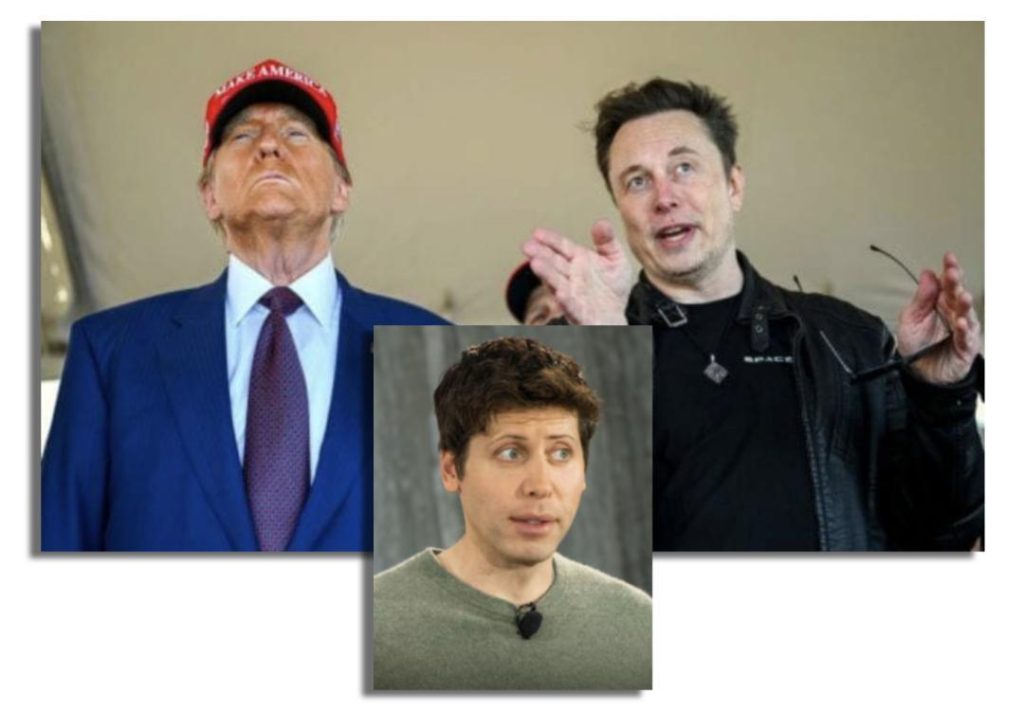
Elon Musk Tried to Block OpenAI’s UAE Deal, Trump Admin Ignored Him: Report
When it comes to the world of artificial intelligence, Elon Musk is a name that often comes up. As the CEO of Tesla and SpaceX, he has been at the forefront of AI development for years. However, a recent report suggests that Musk’s involvement in AI went beyond just developing new technologies. According to The Wall Street Journal, Musk attempted to pressure the Trump administration to block a deal between OpenAI, a leading AI research organization, and the United Arab Emirates (UAE).
The report claims that Musk, who is also a co-founder of OpenAI, wanted the deal to be conditional on OpenAI’s AI startup, Neuralink, being included in the agreement. However, the White House reportedly ignored his demands and decided to move forward with the deal despite his objections.
The deal between OpenAI and the UAE was reportedly valued at around $15 million and aimed to establish a research center in the UAE to focus on AI development. OpenAI’s CEO, Sam Altman, was quoted as saying that the deal was a “major step forward” for the organization and would allow it to expand its research capabilities.
However, Musk’s attempt to block the deal has highlighted the growing tensions between him and Altman. The two have been at odds over OpenAI’s decision to shift from a non-profit model to a for-profit model. Musk has been vocal in his criticism of the change, arguing that it would undermine the organization’s ability to conduct independent research.
The dispute between Musk and Altman has been ongoing for some time, with Musk threatening to leave OpenAI if the organization did not reverse its decision to become a for-profit entity. However, it appears that the White House’s decision to ignore Musk’s demands has only further escalated the situation.
The report also raises questions about the involvement of the Trump administration in the deal. While it is not uncommon for the administration to be involved in international agreements, the fact that Musk was able to pressure the White House to block the deal suggests that there may be more to the story than initially meets the eye.
The UAE has been a key player in the global AI market, with the country investing heavily in AI research and development. The deal between OpenAI and the UAE is seen as a major coup for the organization, and the UAE’s investment in AI research is expected to continue to grow in the coming years.
In a statement, OpenAI said that it was “proud to be partnering with the UAE to advance the field of AI” and that the deal would “help to accelerate the development of AI technologies that benefit humanity.” The organization also emphasized that it remained committed to its mission of “advancing AI research and development for the benefit of all humanity.”
The decision by the White House to ignore Musk’s demands has been met with widespread criticism from some of the world’s leading AI experts. Dr. Fei-Fei Li, a leading AI researcher and director of the Stanford AI Lab, said that the move was “a major setback for the AI community” and would “undermine the progress we have made in AI research.”
Dr. Li also criticized Musk’s attempt to block the deal, saying that it was “a clear attempt to exert influence over the AI research community.” She added that the move was “unacceptable” and would “have serious consequences for the future of AI research.”
The report has also sparked concerns about the potential impact on the global AI market. If the deal between OpenAI and the UAE is blocked, it could have serious implications for the development of AI technologies. The UAE has been a key player in the global AI market, and its investment in AI research is expected to continue to grow in the coming years.
In conclusion, the report highlights the growing tensions between Elon Musk and Sam Altman over OpenAI’s decision to shift from a non-profit model to a for-profit model. The attempt by Musk to block the deal between OpenAI and the UAE has also raised questions about the involvement of the Trump administration in the deal. The decision by the White House to ignore Musk’s demands has been met with widespread criticism from some of the world’s leading AI experts, and the potential impact on the global AI market remains to be seen.






